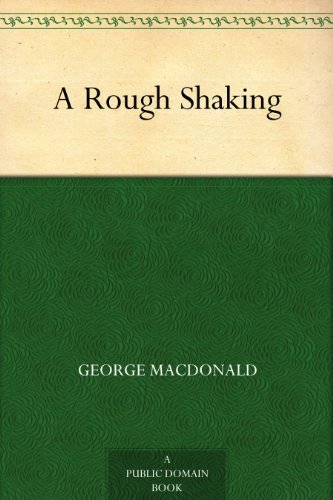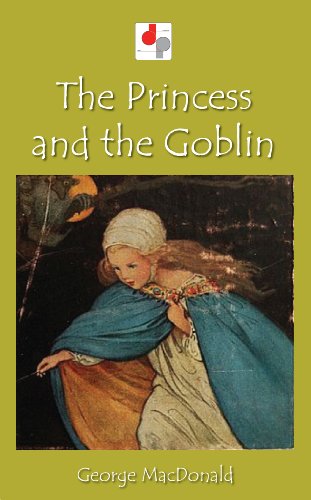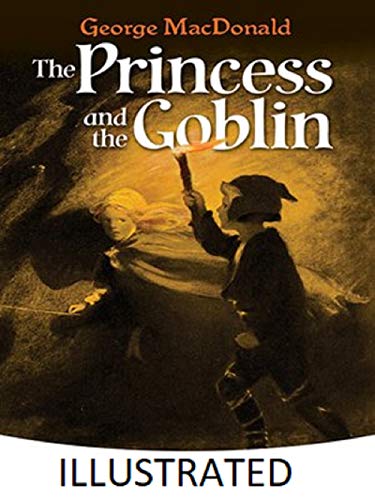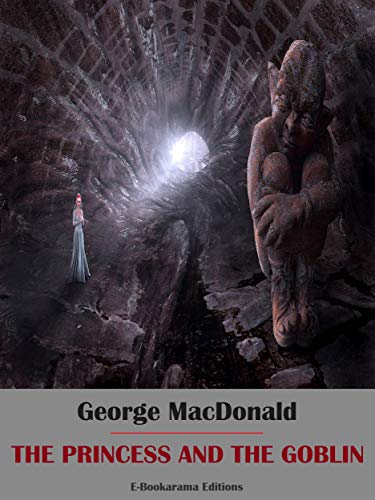-
A Rough Shaking
Georg MacDonald
eBook (, May 16, 2012)This book was converted from its physical edition to the digital format by a community of volunteers. You may find it for free on the web. Purchase of the Kindle edition includes wireless delivery.
-
Unspoken Sermons Series I, II, and III
George MacDonald
eBook (Start Publishing LLC, Nov. 26, 2012)MacDonald rejected the doctrine of penal Substitutionary atonement as put forward by John Calvin which argues that Christ has taken the place of sinners and is punished by God in their place, believing that in turn it raised serious questions about the character and nature of God. Instead, he taught that Christ had come to save people from their sins, and not from a Divine penalty for their sins. The problem was not the need to appease a wrathful God but the disease of cosmic evil itself.
-
The Princess and the Goblin
George MacDonald
eBook (Didactic Press, Oct. 7, 2013)Quite possibly one of the best children's novels ever written, the Princess and the Goblin is a masterpiece of fantasy, weaving themes of courage and honor with adventure and fantastic narrative. Richly illustrated throughout, this highly recommended ebook has been formatted for Kindle devices and the Kindle for iOS apps.
-
Flashman: A Novel
George MacDonald Fraser
Paperback (Plume, Aug. 1, 1984)"If ever there was a time when I felt that 'watcher-of-the-skies-when-a-new-planet' stuff, it was when I read the first Flashman."–P.G. WodehouseThe first novel in the Flashman series Fraser revives Flashman, a caddish bully from Tom Brown's Schooldays by Thomas Hughes, and relates Flashman’s adventures after he is expelled in drunken disgrace from Rugby school in the late 1830s. Flashy enlists in the Eleventh Light Dragoons and is promptly sent to India and Afghanistan, where despite his consistently cowardly behavior he always manages to come out on top. Flashman is an incorrigible anti-hero for the ages. This humorous adventure book will appeal to fans of historical fiction, military fiction, and British history as well as to fans of Clive Cussler, James Bond, and The Three Musketeers.
-
The Princess and the Goblin
George MacDonald
Paperback (Independently published, Oct. 25, 2019)Young Princess Irene lives in a castle on a wild and lonely mountainside. One day she discovers a staircase leading to a maze of unused passages with closed doors behind which lie shadowy caverns, goblins, and a world of untold mysteries. Can she save her kingdom from the plans of the menacing goblins who lurk just below the mountainside?
-
The Princess and the Goblin Illustrated
George MacDonald
eBook (E-BOOKARAMA, Oct. 14, 2019)"The Princess and the Goblin is a children's fantasy novel by George MacDonald. It was published in 1872 by Strahan & Co.Anne Thaxter Eaton writes in A Critical History of Children's Literature that The Princess and the Goblin and its sequel ""quietly suggest in every incident ideas of courage and honor.""[1] Jeffrey Holdaway, in the New Zealand Art Monthly, said that both books start out as ""normal fairytales but slowly become stranger"", and that they contain layers of symbolism similar to that of Lewis Carroll's work"
-
The Princess and the Goblin
George MacDonald
eBook (E-BOOKARAMA, Nov. 8, 2019)"The Princess and the Goblin" is a fantasy classic written by Scottish author George MacDonald in 1872. Although MacDonald wrote "The Princess and the Goblin" primarily for children, his fantasy continues to delight readers of all ages.MacDonald's book contains the elements of good story telling—an exciting, well-paced plot and believable characters, who have human weaknesses as well as strengths.The twentieth-century English poet, W. H. Auden, called MacDonald's technique "dream realism" and honoured "The Princess and the Goblin" as "the only English children's book in the same class as the Alice books." Unquestionably MacDonald employed fantasy as a way of presenting the Christian spiritual concepts of faith and love. But MacDonald's marvellous story, with its fusion of fantasy and realism, is so original that it appeals to the imagination rather than to analytical faculties.The nurse Lootie raises the princess Irene in a house on a mountain, it is here that she meets her mysterious great-great-grandmother, and her friend the minor boy Curdie. Things are peaceful for Irene until the hideous race of goblins that live beneath the mountain start planning something big…In summary, "The Princess and the Goblin" is the story of two young people who grow in maturity and spiritual development as they thwart the evil plans of goblins.
-
Lilith
George MacDonald
Paperback (Independently published, Dec. 23, 2019)Lilith is a fantasy novel by Scottish writer George MacDonald, first published in 1895. It was reprinted in paperback by Ballantine Books as the fifth volume of the Ballantine Adult Fantasy series in September 1969. Lilith is considered among the darkest of MacDonald's works, and among the most profound.
-
All Animals Go to Heaven
George MacDonald
eBookAnyone who has lost a dearly beloved pet knows that the question of what happens to them after death is a tender, important subject. In this book, author and Christian minister George MacDonald presents the case that the mourning pet owner has reasons to look forward to a future reunion, and his conclusions will surprise both believers and non-believers alike. In the process, MacDonald passionately contends that we should endeavor to treat all animals in this present life with the same love and kindness they are destined to experience in the hereafter.
-
Phantastes
George MacDonald
language (Difference Solutions Publishing, Dec. 10, 2016)George MacDonald (10 December 1824 – 18 September 1905) was a Scottish author, In October 1857, George MacDonald wrote what he described as ?a kind of fairy tale, in the hope that it will pay me better than the more evidently serious work.? The book is about the narrator?s (Anodos) dream-like adventures in fairyland, where he confronts ..
-
Phantastes
George MacDonald
language (Difference Solutions Publishing, Dec. 10, 2016)George MacDonald (10 December 1824 – 18 September 1905) was a Scottish author, In October 1857, George MacDonald wrote what he described as ?a kind of fairy tale, in the hope that it will pay me better than the more evidently serious work.? The book is about the narrator?s (Anodos) dream-like adventures in fairyland, where he confronts ..
-
The Light Princess
George Macdonald
Paperback (CreateSpace Independent Publishing Platform, Sept. 30, 2017)List Price: $7.95 Add to Cart About the author: George Macdonald The Light Princess A Scottish Fairy Tale Authored by George Macdonald The Light Princess By George Macdonald The Light Princess is a Scottish fairy tale by George MacDonald. It was published in 1864. Drawing on inspiration from Sleeping Beauty, it tells the story of a princess afflicted by a constant weightlessness, unable to get her feet on the ground, both literally and metaphorically, until she finds a love that brings her down to earth. An animated version was released in 1978. In 2013, a musical version by Tori Amos and Samuel Adamson inspired by the original story was premiered for the Royal National Theatre in London. The stage production featured actress Rosalie Craig as the titular character. The musical was generally well-received, enjoyed an extended run in the theatre and will see its cast recording released in 2015. A king and queen, after some time, have a daughter. The king invites everyone to the christening, except his sister Princess Makemnoit, a spiteful and sour woman. She arrives without an invitation and curses the princess to have no gravity. Whenever the princess accidentally moves up in the air, she has to be brought down, and the wind is capable of carrying her off. As she grows, she never cries, and never can be brought to see the serious side of anything. The court philosophers, when consulted, are unable to propose any cure that the king and queen will suffer to be used.